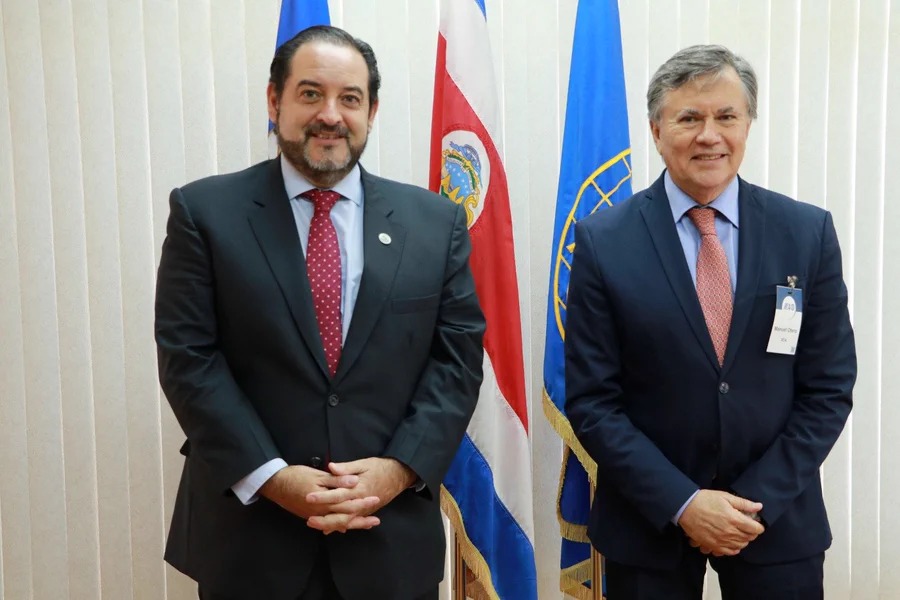En la reunión abordaron temas como biocombustibles líquidos, descarbonización, energías renovables con el objetivo de promover el bienestar de los países de las Américas.

San José, August 28 , 2023 (IICA). The Director General of the Inter-American Institute for Cooperation on Agriculture (IICA), Manuel Otero, hosted a meeting in Costa Rica with the Executive Secretary of the Latin American Energy Organization (OLADE), Andrés Rebolledo, to discuss a program of future joint work aimed at pooling resources in areas of common interest, thereby building bridges between the rural and energy sectors.
The heads of IICA and OLADE were joined by OLADE’s Director of Energy Integration, Access and Security, Gloria Alvarenga, and the Institute’s Chief of Staff, Miguel Arvelo, the Manager of the Innovation and Bioeconomy Program, Hugo Chavarría, and the Specialist in Biofuels and Renewable Energies, Agustín Torroba.
The first topic discussed was the development of liquid biofuels in Latin America. IICA emphasized that their development was important for three reasons: decarbonization, energy diversification, and the promotion of the agriculture sector. In addition to the traditional biofuels used for terrestrial transport, the discussions included emerging technologies for the production of biofuels and low-carbon fuels designed to decarbonize the aviation and maritime sectors.
The officials also turned their attention to the promotion of other types of renewable energy in rural areas, with a view to promoting the well-being of rural populations not connected to their national grid, and the importance of rural schools and health posts having access to electricity. In addition, they focused on the issue of agricultural production systems that do not have access to electricity or other cheap, clean sources of energy.
“Increased collaboration between IICA and OLADE will promote more interaction between the agriculture and energy sectors, with all the points of connection that that entails. The relationship between the farming and energy sectors is strong: agriculture is the largest global supplier of renewable energy for transport, in the form of liquid biofuels, and there is great potential, with development already under way, to produce sustainable aviation fuels,” Torroba pointed out when commenting on the meeting.
“In addition to supplying raw materials for the production of bioenergy, agriculture can complement food production with the generation of renewable energies in rural areas. This will make it possible to expand the global production of renewable energy and give rural areas that are being left behind and are not connected to national grids access to clean energy,” the IICA specialist concluded.
About OLADE
The Latin American Energy Organization (OLADE) is an intergovernmental, public organization whose remit is cooperation, coordination and technical assistance. It was created with the signing of the Lima Agreement on November 2, 1973, which 27 Latin American and Caribbean countries have since ratified. Its core objective is to promote the integration, conservation, rational use, commercialization and defense of the region’s energy resources.
More information:
Institutional Communication Division.
comunicacion.institucional@iica.int











